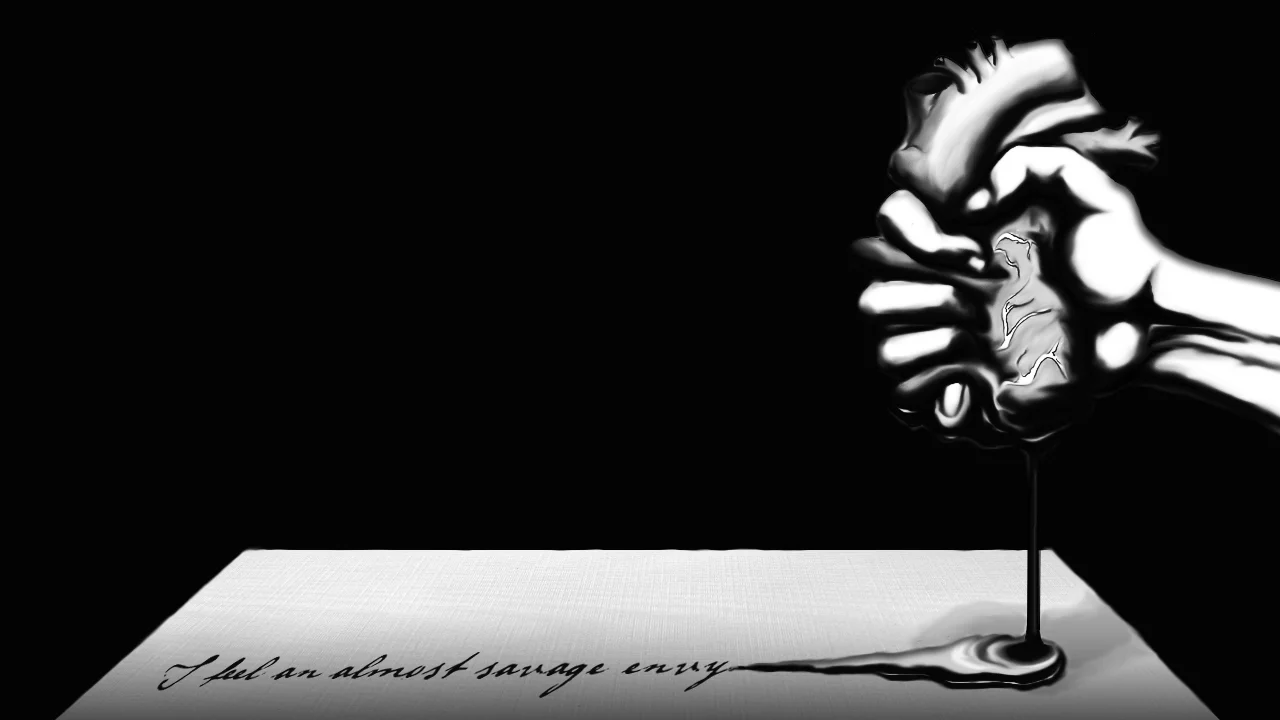When I'm using music as an accompaniment to something I'm doing - in this case writing an essay - I don't want it to get "too" interesting all of a sudden. The idea of taking a theme and slowly working it, gently twisting and developing it into new shapes and sounds makes a lot of sense to me. It's different enough to allow the brain to notice the change, but not too different that it has to devote extra resource to processing it.
Viewing entries in
Tracks
Have you ever had your family break apart?
I have.
There are a hundred different feelings you go through, none of them good, but the emotion that lingers long after everything else has faded, is sadness.
Sadness for what happened, sadness for how it was handled, sadness for the lives that were changed and sadness for the loss of relationships that I still hold dear.
Major Minor / Happy Sad
This piece was a full and intentional look into how that sadness made me feel.
There’s this false happy opening - a simple descending melody that sets up the expectation of a sweet little melody and yet, within a minute, it’s fallen into a minor key. Pretty much all the way through the track you never quite know if you’re major or minor, happy or sad.
I think when you’re dealing with grief, you have to accept that your emotions are going to do their own thing - some days they’re great, others not so much and there’s little warning as to what you’re going to get.
Sadness to me is soft - it’s passive - it doesn’t have the energy of anger or frustration - it’s quiet and delicate - the knife slips under your breastbone rather than bashes through it.
Optimist
Of course - I’m a hopeless optimist.
I can’t change the past but I can look forward to the future. I don’t know how things will get better, I just believe that they will.
The track mirrors that optimism - after 7 minutes or so there’s a subtle shift, the energy is still low, the keys still change, but there’s a quiet hope, a more grounded representation of the theme. And while the ending could have lapsed back into melancholy, it finishes on a hopeful ascent up the keyboard.
Wishful thinking?
Maybe, but life’s too short to feel sad the whole time.
Find Us On Spotify
We're going to be focusing a lot on Spotify over the coming year - it is by far the biggest revenue source for Musicto and music2work2 and the best way for you to support us is to listen to and share our playlists.
We will be developing the Music to Grieve to playlist by adding new tracks so make sure you choose to follow.
Aside from following Musicto and music2work2 on Spotify you can of course sign up for the email list. We only ever contact you when we have new music available.
I’ve been writing music since I can remember. My first memories are not of scales and baby Mozart, they’re of the piano in Singapore where Angels and Demons lived at opposite ends of the keyboard and played battles through my fingers.
I was three when I met my first piano teacher, eight when I wrote my first song, thirteen when I played my first rock show and sixteen when I wrote my first Hymn. Yes – this track was the Hymn.
Written for a school music competition the task was to take the the Hymn “These Things Shall Be!” from the poem “A Vista” by John Addington Symonds 1840 – 1893 and create new music.
I think I came second!
My Father
The reason this track makes it onto the album is that my Father fell in love with it. Out of all the things I had done it was this track that resonated with him and he asked for it to be played at his funeral.
When the time came – I couldn’t. The piece wasn’t finished and it would have felt – just odd – weird and ultimately - wrong.
This version is solo piano – which is what he was familiar with – but I hear this with full orchestra and a bloody great church organ delivering a final crescendo - I think he would've dug that.
Acceptance & The Five Stages
This track was always going to be the last one on the album - and when I was still working with the idea of a track for each stage of the Kubler_Ross model, it was fitting that this was going to be called acceptance.
There is a hopefulness to the track - particularly in the coda where it’s all about imperfect and perfect cadences all resolving positively around the G major root. The reality of grief is that life does go on, and while the grief may never fully subside, it does fade and we do get to feel good again.
Acceptance is about reaching the point where it’s OK to feel good again. The final notes of the album are the opposite of the beginning, they are still the major triads but this time they are major and instead of descending, they are uplifting, ascending the keyboard to finish on a high, hopeful note.
FIND US ON SPOTIFY
We're going to be focusing a lot on Spotify over the coming year - it is by far the biggest revenue source for Musicto and music2work2 and the best way for you to support us is to listen to and share our playlists.
We will be developing the Music to Grieve to playlist by adding new tracks so make sure you choose to follow.
Aside from following Musicto and music2work2 on Spotify you can of course sign up for the email list. We only ever contact you when we have new music available.



